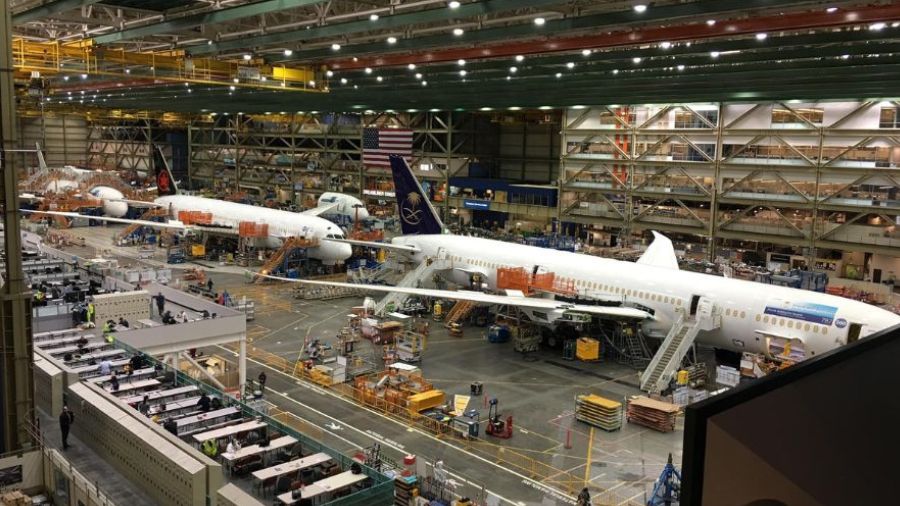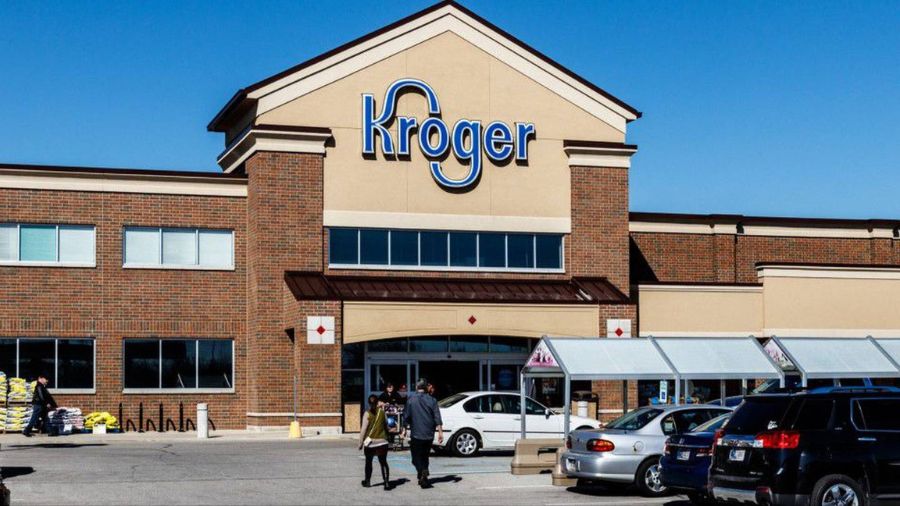Sound Transit mulls aggressive fare enforcement with revenue forecasts in ‘wrong direction’
Mar 17, 2022, 3:02 PM | Updated: Apr 29, 2022, 6:25 am

A security guard rides the escalator out of the Sound Transit Link Light Rail tunnel. (Getty Images)
(Getty Images)
Passengers aren’t paying fares when they board the Link, and it’s starting to worry Sound Transit.
The Sound Transit board of directors, alongside Puget Sound region civic leaders, met Wednesday to discuss the long-term ramifications of the simple fact that revenue generated from soliciting fares from Sound Transit patrons is significantly below their revenue forecasts, with cascading ramifications for the future outlook of realignment— adjusting light rail’s expansion in keeping with the rising cost of real estate and building materials.
The board reported that “farebox recovery” revenue generated to pay for Sound Transit’s operations was 35% below their target goals in 2021. The transit agency reports that only once since 2011 has it met its goal of paying 40% of operating costs with ticket fares.
“Fare revenue is $8.3 billion within the overall $138 billion finance plan that’s over the life of the program through 2046,” Alex Krieg, Sound Transit director, said Wednesday. “There’s an expectation built into the finance plan that fare revenues support ongoing operations costs. … The reason we’re here is a trend we’re seeing is really in the wrong direction that’s leading to some decreases in our fare revenue projections, which do have implications to the overall program and program affordability.”
While the ramifications of a years-long pandemic have spiraling effects on the willingness of the public to subsidize light rail with their wallets and riding interest, the board highlighted the effect of simple non-compliance with paying passenger fares.
They looked at two data sets to analyze the problem: real-time, observed non-compliance, “fare evasion rate,” and “non-fare boarding rate” datasets that account for mitigating factors such as difficulty in tracking compliance during peak hours when fare ambassadors simply cannot check an entire train, or legal non-fare boarding such as for children under 6.
Fare ambassadors replace officers on Sound Transit trains
Between 2020 and 2021, fare evasion was 10-30%; non-fare boarding estimates were 40-70%. For the previous two years, those respective data were 3% and 14%.
Those figures were tracked against different policies that affect compliance: pre-COVID numbers when citations for policy infraction was more judicious, and local law enforcement could become involved for failure to present ID; and subsequent post-COVID measures such as the fare ambassador program, transit employees with the goal to educate riders on compliance, but without the current authority to issue disciplinary measures.
Pre-COVID, those numbers (non-fare boarding) hovered between 19% and 7% (outside of obvious statistical anomaly errors). Post-COVID and suspension of citations, those numbers range between 60% and 31%.
Kent Keel, Sound Transit board chair, put it simply: “[When] we had more stringent enforcement, [evasion] numbers were lower. … Now, not as stringent, and the numbers are higher, which is to say that we’re seeing more evasion.”
Compounding the problem is, according to data presented in the meetings, up to 76% of those who receive warnings for not presenting proof of payment fail to present identification. Before the pandemic, the sheriff’s office could become involved in such a case. With the passage of HB 1310, law enforcement is not able to detain a suspect on suspicion of a property crime.
“There would not be any ability to detain someone right now for that because of the legislation that went into effect July 25 of 2021,” said Nancy Backus, Auburn’s mayor and Sound Transit board member. “Use of force to detain under the current legislation is not allowed anyway. So there would be no way for them to do that, other than just asking them.”
“I think, rightfully, we don’t want to get people involved in a criminal legal system,” added Dave Upthegrove, King County councilmember. “At the same time, we have people thumbing their nose and not showing ID according to some of the reports. Finding that approach that is effective is going to be a challenge.”
While Wednesday’s board meeting was only intended to be educational and did not present any definitive recommendations, a number of ideas were floated that did not raise any public objections. Top-level speculative consideration included enabling fare ambassadors to issue civil citations, raising fares in areas where employers subsidize a major percentage of ORCA cards, simply lowering Sound Transit’s expectation for the amount of money it generates from fares, and retrofitting stations with turnstile capacity.
As for the latter, retrofits to existing stations come with a variety of design implications, not to mention the raw expense involved as the transit agency reports budget shortfalls that have forced realignment talks in recent months. Peter Rogoff, Sound Transit CEO, discussed the dollars involved in their failure to recoup operating costs with fares, and why that might force Sound Transit’s hand in pursuing more aggressive fare enforcement in the form of physical barriers to entry.
Sound Transit considers competing proposals for West Seattle, Ballard Link extension
“I hesitate to even share this, but … if we’re at the low end of losing $6.1 billion in just that short timeframe, and we can’t improve on that ever, …the fiscal loss may be so large that it might actually make sense to fight off that huge investment to go to a turnstile system,” Rogoff said. “But there are many measures that we are hoping for to improve on that number without having that investment.”
Regarding those measures, there appeared to be some implied consensus that rate increases are due as adjustments have been postponed because of the pandemic. Rogoff called out that rate increases are better withstood by counties with a high percentage of riders with fares subsidizes by employment.
“We had planned to bring action for the board to consider a fare increase in 2020, but obviously this was deferred due to COVID,” Krieg continued. “So our base fare on Link remains $2.25, which is a little dollar less than our base fare on the Sounder and $1 less than our current ST Express fare. If we were to maintain our current fare and with our current projections the ridership be projected only be at 18% farebox recovery by 2025.”
Complicating the issue, albeit in a way that is ultimately positive for ridership, is that the Legislature has incentivized local metros and Sound Transit to offer free fare to children with their recent transportation package.
With Washington traffic deaths on the rise, Democrats mull expanded ‘complete street’ design
“I’m sort of technically the head of Metro Transit, and I’m really mindful of the importance of us here at Sound Transit working as much as possible to coordinate our fare policy with the other transit agencies in our region,” King County Executive Dow Constantine said.
“It’s important, not just for our internal accounting, but for the creation of a uniform, seamless, simple customer experience to go with our seamless transit system we’re seeking to build so that we can attract more people to transit, not having a confusing flex assortment of fare policies across the region. I hope that we’ll remember to focus on that as we continue with the conversation about what the fare should be, and when we should change them.”
“The other issue was the Legislature has finished the session, and one of the big items within the transportation budget had to do with incentivizing agencies to create a free youth fare. … That is going to probably happen across our bus transit agency region.”
“I would encourage us to get in the analysis we need to do about youth fares as quickly as possible because there’s an October 1 deadline to take action.”
Editor’s note: This article was updated April 29 to reflect revised Sound Transit estimates of the percentage of non-paying passengers who refuse to present I-D.












